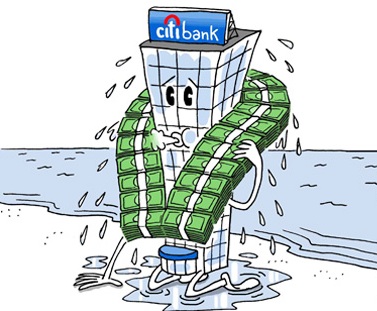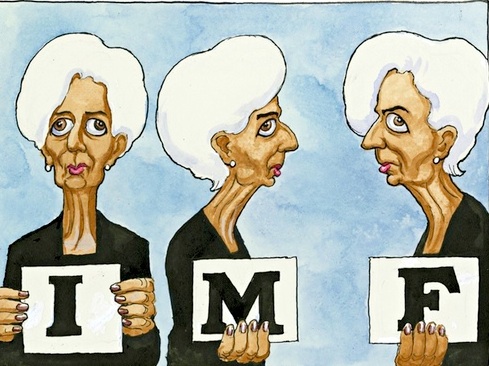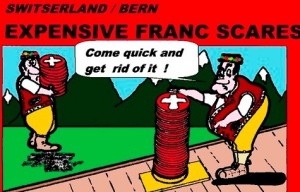Gutram B. Wolff writes:. It is true that the European Central Bank (ECB) cannot solve all of the euro area’s problems: governments have a clear obligation to move ahead more quickly with structural reforms that address the deep divergences in the euro area and with more public investment to trigger growth.
Should national central banks to take on the risk of default on sovereign bonds, while the market risk will remain with the Eurosystem as a whole.
Signalling: Buying sovereign bonds but leaving national central banks to take on the risk of default would be a strong signal that the ECB is no longer a “joint and several” institution. It would effectively be a declaration that the ECB cannot act and purchase government bonds as a euro-area institution in the interest of, and on behalf of, the entire euro area. This could severely undermine the ECB’s credibility not just in the sovereign purchase programme but also more broadly as an institution.
Note: Draghi asked the 19 national central banks to buy the sovereign bonds and be responsible for defaults.
2) ECB executive board member Benoit Coeure argued that it is illegal according to the treaty to reschedule or restructure the Greek debt that the ECB holds. He argued that the ECB bought this debt for monetary policy purposes and that any restructuring of such a portfolio would be against the treaties.
A different question is how to consider losses that the ECB would make on a forced restructuring.
This uncertainty is the main reason why the ECB Governing Council may be why default risk has remained with the national central banks.
Suppose a country has 25 percent of its debt in the hands of its national central bank. What would happen if the national government had to decide to impose a haircut on all of its debt in order to reduce the burden on its taxpayers? There are essentially two options in such a case: The national treasury could decides to exempt the national central bank from participating in the loss. Or the national treasury could include the national central bank in the haircut. The national central bank would incur a loss, its equity would fall or even become negative. Normally, a central bank would then go to its treasury, pass on the losses and ask for a recapitalization. This would essentially mean that the treasury would not benefit from defaulting on this part of the debt and again, the other creditors would have to bear a greater part of the burden. They would be junior and again ask for a risk premium ex ante.
So the purely national purchase of national sovereign debt would either leave the private creditors as junior creditors, or the national central bank has to accept negative equity.
To sum up, either government bond purchases made by national central banks are super-senior or the potential default risk on the government bonds will be passed on to the Eurosystem as a whole. In the former case, the QE bond purchase would be rather ineffective. In the latter case, the only way to avoid losses for the Eurosystem would be to use other national central bank assets, such as gold or potentially future seignorage.
Policymakers will have to accept the consequences of mandating bond purchases on the national central banks.










